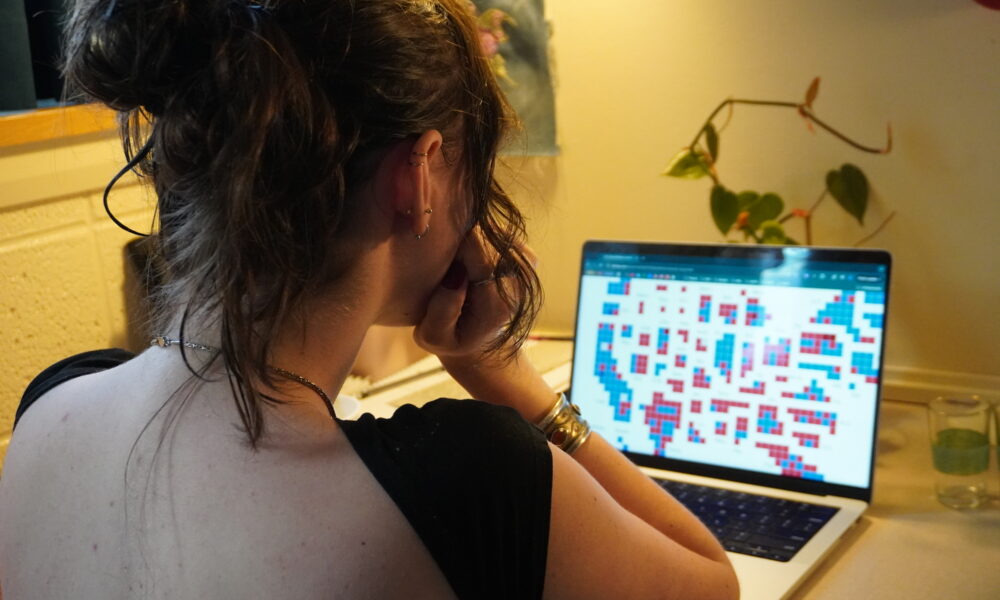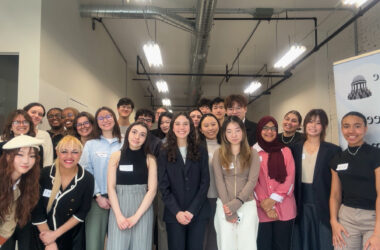For the last four years, my mom has been running for Congress in Tucson, Arizona. She started her political journey in the state legislature when I was 11. When she first ran for Congress, she lost by such a narrow margin that many asked her to run again; so she did. Her race this time was one of the closest and most high-profile in the country, as it could have been one of the four seats needed by Democrats to gain a majority in the House of Representatives.
I came to McGill a year and a half ago, far from where American politics run both my parents’ lives. While most people know about the presidential elections, few know the nitty-gritty of the campaigns behind them.
My biggest takeaways from watching a congressional campaign behind the scenes are how gruelling the work is, how constrained candidates are in what they can say or do to appeal to voters, please their own party, and prevent an avalanche of spending against them, and most importantly, how almost everything in American politics is about money—a whopping $36 million USD was spent in my mom’s race by both sides.
Every time I accompanied my mom to an event, people were excited to meet the candidate’s daughter. They recognized me from her TV ads, asking “Aren’t you proud of your mom? Isn’t she cool? Are you going to run for office like her?”
But I just see her as my mom. At home, she is loving, caring, and quirky. She doesn’t understand technology or pop culture, she hates scary movies, laughs easily, sings or hums when she walks around the house, and loves to accumulate a ridiculous number of houseplants. She’s smart, and very opinionated, having worked as an environmental lawyer before politics.
But this isn’t who she is during the campaign. Her fiery candidate persona is like a superhero alter ego, albeit one constrained by her consultants and the “D-triple-C” (Democratic Congressional Campaign Committee). They told her reproductive rights were her strongest issue—crucial because abortion care in Arizona is abysmal—despite water and climate issues being her professional strength. In the state legislature, she championed bipartisan progressive criminal justice reform, which she was discouraged from mentioning in the campaign because her opponent was accusing her of wanting to defund the police. I noticed she was also overly cautious when speaking on controversial topics, like Israel’s siege on Gaza. This was a point of contention in our household: I wanted her to speak out more strongly against it.
The conservative district also played a role. She was asked in an interview once, “Is there a crisis on the border?” She answered “No,” and followed it with a thorough answer about the need for more officers to process asylum-seeking migrants, and the need to secure the border from drug and human trafficking. But her opponent clipped her saying “No,” and ran it in a TV ad, making his whole campaign against her about that one word. The political system is so inflated with money—which mostly goes to TV hit ads—that it pushes candidates to be centrist and robotic.
I flew home to Arizona for her (and the presidential) election night. Initially, energy was high, but as the night wore on, the ambiance took a plunge. First North Carolina went for Trump, and then the rest of the swing states, one by one. We were all in shock, but my mom’s race took a week to finish being counted. She was ahead on election night, but little by little, her opponent surpassed her, winning the election in the Trump wave that swept the nation.
It’s incredibly disappointing. Her campaign was exciting and important, and she could have done so much as a congresswoman. Looking back, I feel she was squeezed into a mold that the party had for her, one which flattened her into something much less nuanced and certainly less interesting than she is.







